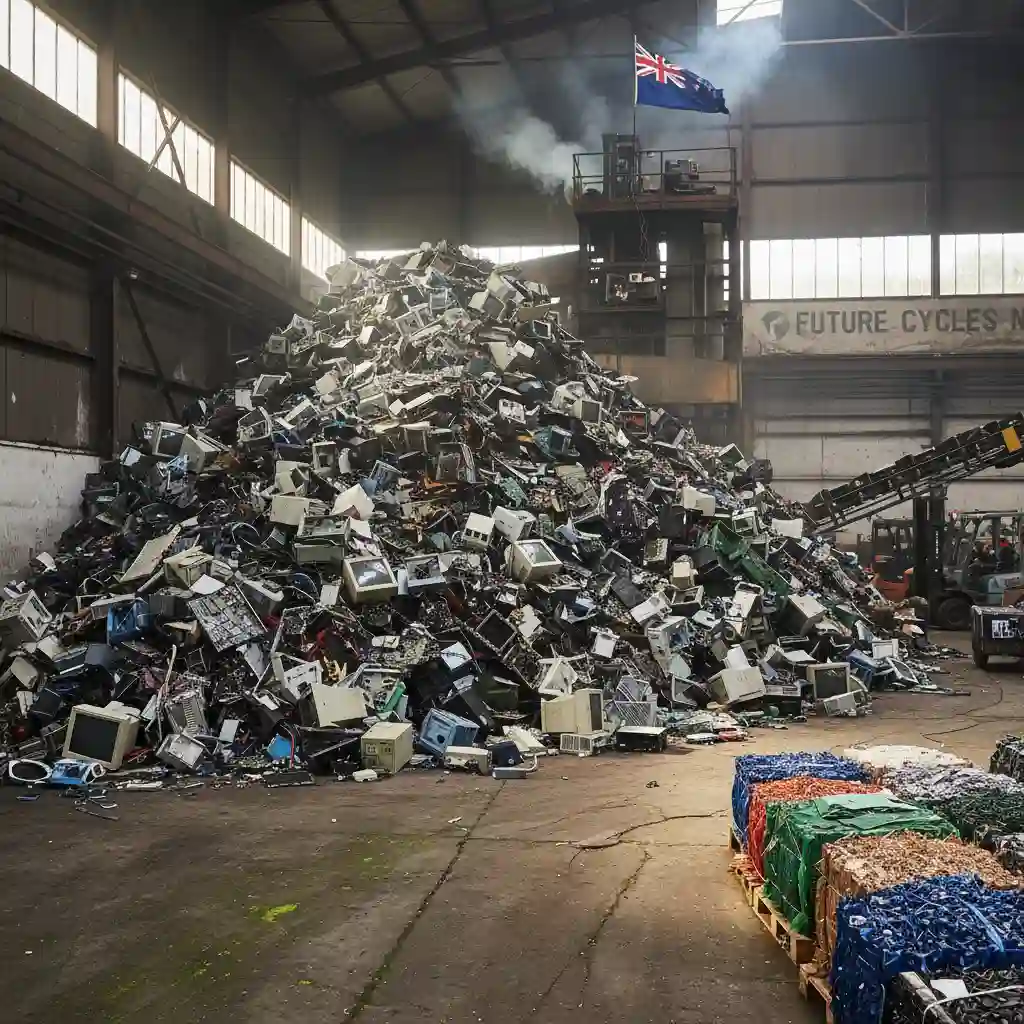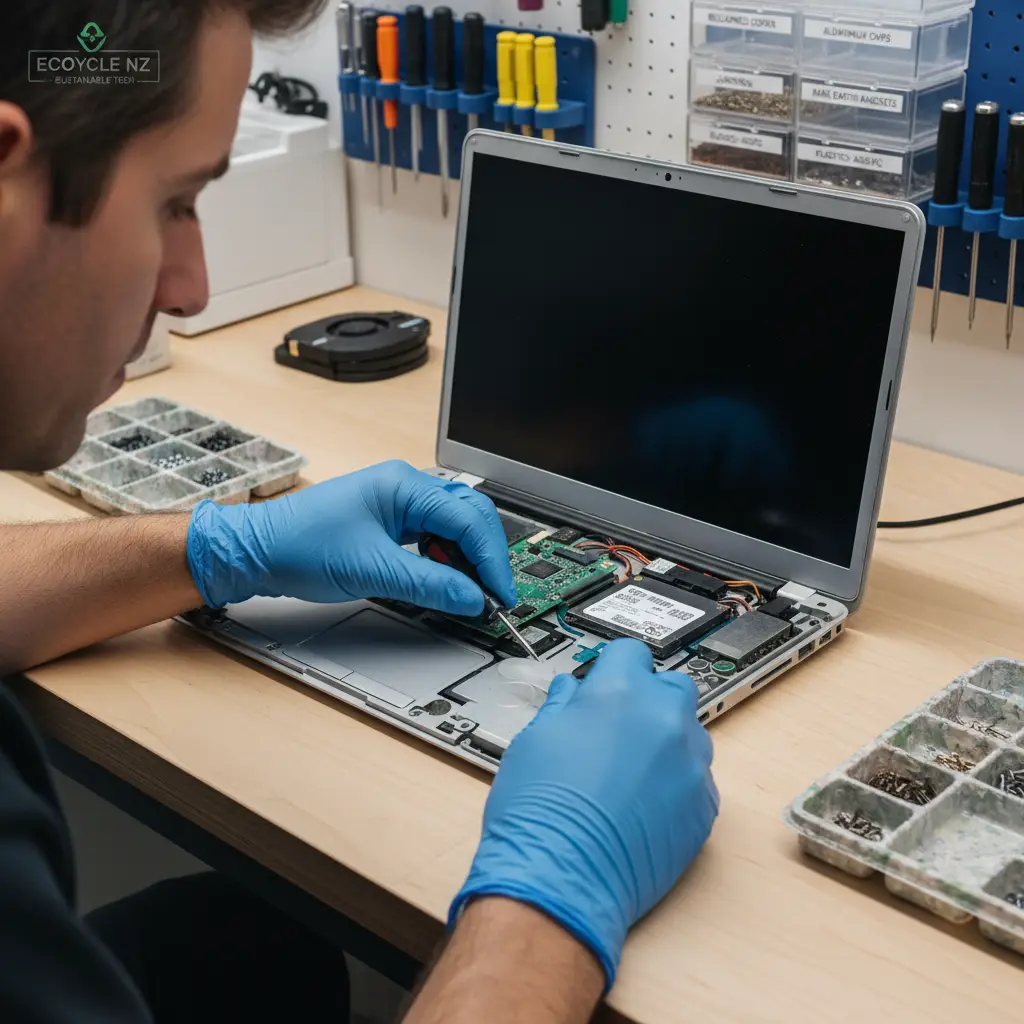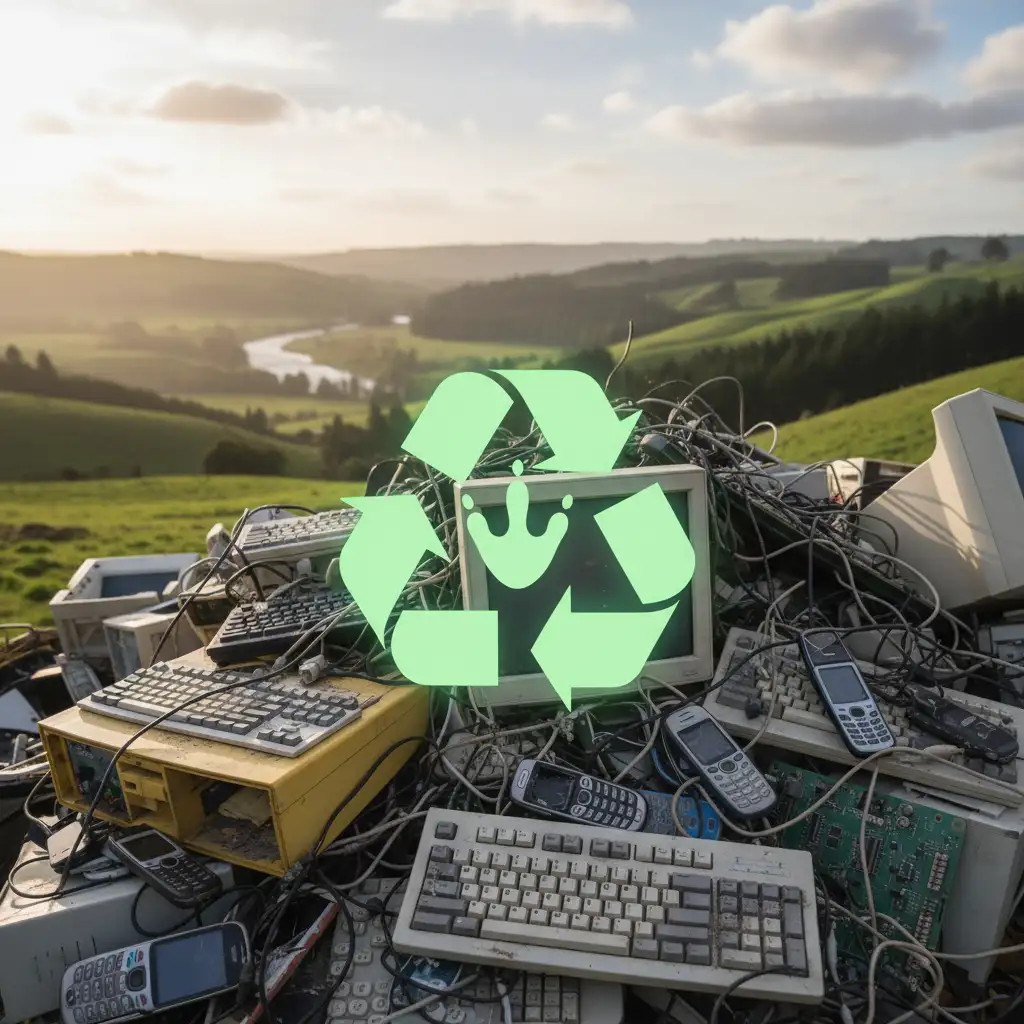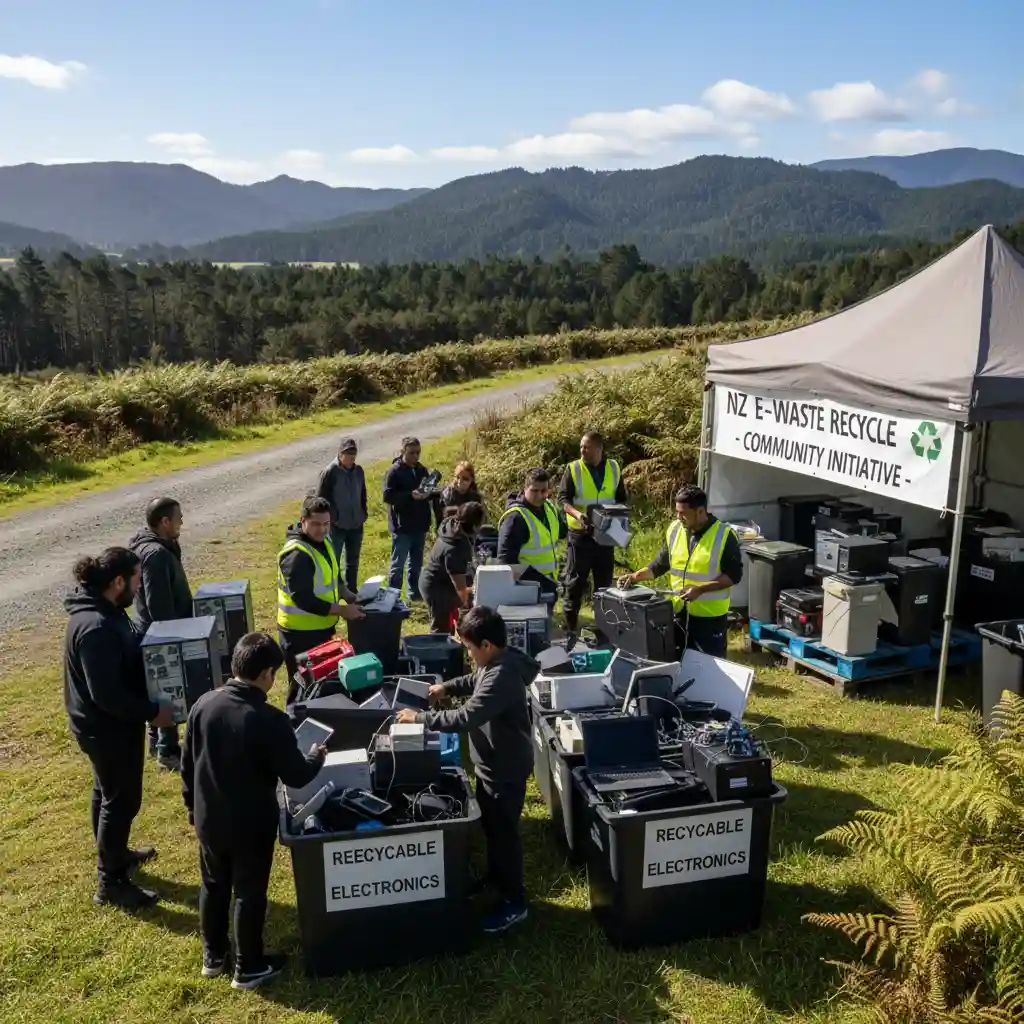Navigating E-Waste Regulations for Sustainable Living in NZ
In our increasingly digital world, electronic waste (e-waste) is a growing concern, and New Zealand is no exception. As we embrace sustainable living, understanding how to responsibly manage our old devices isn’t just a good practice—it’s crucial for the health of our planet and future generations.
But what exactly are the rules and guidelines for discarding everything from an old smartphone to a defunct refrigerator here in Aotearoa? The landscape can seem complex, shifting between national policies, local council initiatives, and voluntary schemes. This comprehensive guide aims to demystify Navigating E-Waste Regulations for Sustainable Living in NZ, empowering you to make informed, eco-conscious decisions.
Table of Contents
1. The Growing E-Waste Challenge in New Zealand
E-waste, or electronic waste, refers to discarded electrical or electronic devices. This includes everything from old cell phones, computers, and TVs to large household appliances like fridges and washing machines. It’s a rapidly growing waste stream globally, driven by technological advancements, increased consumption, and shorter product lifespans.
For New Zealand, managing e-waste poses significant environmental and health challenges. Many electronic components contain hazardous substances like lead, mercury, cadmium, and brominated flame retardants, which can leach into soil and water if not disposed of properly. Conversely, e-waste also contains valuable resources such as gold, silver, copper, and rare earth metals that can be recovered through responsible recycling, reducing the need for virgin mining.
New Zealand generates approximately 80,000 tonnes of e-waste annually, and this figure is projected to rise. A significant portion still ends up in landfills, representing a huge loss of recoverable resources and a potential environmental hazard. (Source: Ministry for the Environment estimates)

2. New Zealand’s Approach to E-Waste Regulation
Unlike some countries with comprehensive ‘WEEE’ (Waste Electrical and Electronic Equipment) directives, New Zealand’s approach to e-waste is more decentralised, relying on a combination of overarching legislation and voluntary schemes. Understanding this framework is key to Navigating E-Waste Regulations for Sustainable Living in NZ.
2.1 The Waste Minimisation Act 2008
The cornerstone of waste management in New Zealand is the Waste Minimisation Act 2008. This Act provides a framework for reducing waste and increasing resource recovery. While it doesn’t specifically target e-waste with mandatory take-back schemes, it enables the Minister for the Environment to declare certain products as ‘priority products’ and require product stewardship schemes for them.
“The Waste Minimisation Act encourages product stewardship, where producers, brand owners, importers, retailers, and users all share responsibility for reducing a product’s environmental impact throughout its life cycle.”
2.2 Product Stewardship Schemes
Product stewardship is a crucial concept. For e-waste, this means that companies involved in producing or selling electronics take responsibility for their products’ end-of-life management. While some schemes are voluntary, the government can make them mandatory for priority products. Currently, several voluntary schemes exist for specific types of e-waste (e.g., batteries, some appliances).
The government has been working towards regulated product stewardship for various products, including tyres and some forms of plastic. E-waste is a strong candidate for future mandatory schemes, reflecting a growing recognition of its environmental impact.

3. Key Regulations and Initiatives You Should Know
While a single, overarching e-waste regulation might not be in place yet, several initiatives help New Zealanders dispose of their electronics responsibly.
3.1 Local Council E-Waste Collection Points
Your local council is often the first port of call for information on e-waste disposal. Many councils offer dedicated e-waste collection points, special recycling events, or partnerships with private recyclers. These services can vary significantly by region, so it’s always best to check your local council’s website or contact them directly.
- Auckland Council: Provides various drop-off options and guidance for specific items.
- Wellington City Council: Offers information on local recycling centres and events.
- Christchurch City Council: Details services for electronic waste disposal.
3.2 Retailer Take-Back Programs
Some electronics retailers and manufacturers in NZ offer take-back programs, especially for smaller items or when you purchase a new product. Companies like PB Technologies, Noel Leeming, and others may have initiatives to recycle old devices. It’s always worth asking at the point of purchase!

4. Your Role in Sustainable E-Waste Management
As consumers, we play a vital role in Navigating E-Waste Regulations for Sustainable Living in NZ. Our choices significantly impact the lifecycle of electronic products. Embracing the principles of Reduce, Reuse, and Recycle is paramount.
- Reduce: Do you really need that new gadget? Consider if your current device can be repaired or upgraded instead of replaced.
- Reuse: If your electronics still work, consider donating them to charities, schools, or community groups. Ensure all personal data is wiped clean first!
- Recycle: When a device truly reaches its end of life, ensure it’s recycled responsibly through approved channels. Avoid putting e-waste in your regular kerbside recycling bin or general rubbish.
4.1 Your E-Waste Action Plan
Here’s a quick checklist to guide your e-waste decisions:
- Assess: Can the item be repaired? Check with local repair shops.
- Donate/Sell: Is it still functional? Wipe data and find a new home for it.
- Research: Check your local council website for e-waste drop-off locations or special events.
- Enquire: Ask the retailer if they have a take-back program for your specific item.
- Special Items: Batteries, fluorescent bulbs, and large appliances often have specific disposal requirements.
- Data Security: Always wipe personal data from devices before disposal. Consider professional data destruction for sensitive information.

Conclusion
While New Zealand’s e-waste regulations are evolving, the direction is clear: towards greater responsibility and resource recovery. By understanding the current landscape and actively participating in sustainable practices, we can collectively reduce the environmental burden of e-waste and contribute to a healthier, more sustainable Aotearoa.
Your actions, no matter how small, contribute to a larger movement. Be informed, be responsible, and play your part in Navigating E-Waste Regulations for Sustainable Living in NZ.
Frequently Asked Questions (FAQ)
What is e-waste and why is it a problem in NZ?
E-waste refers to discarded electronic devices. It’s a problem in NZ due to the hazardous materials they contain (toxic metals, chemicals) that can leach into the environment if landfilled, and the loss of valuable recoverable resources like gold and copper when not recycled properly. NZ generates around 80,000 tonnes annually, much of which ends up in landfills.
Are there specific laws for e-waste recycling in New Zealand?
New Zealand primarily uses the Waste Minimisation Act 2008 as its framework. While it doesn’t have a dedicated, mandatory WEEE-like regulation specifically for e-waste across the board, it enables product stewardship schemes. These schemes can be voluntary or become mandatory for ‘priority products,’ which e-waste is a strong candidate for in the future. Currently, many initiatives are driven by local councils and voluntary industry programs.
How can I find an e-waste drop-off point near me?
The best way is to visit your local council’s website (e.g., Auckland Council, Wellington City Council, Christchurch City Council) and search for ‘e-waste recycling’ or ‘electronic waste disposal.’ They often provide lists of approved collection points, transfer stations, or upcoming recycling events in your area. Some electronics retailers may also offer take-back services.
Do I need to wipe my data before recycling an old device?
Absolutely yes. Before recycling any device with storage (laptops, smartphones, tablets, hard drives), it is crucial to wipe all personal and sensitive data. Perform a factory reset and, if possible, use data erasure software. For highly sensitive information, consider professional data destruction services to protect your privacy and security.
What happens to e-waste once it’s collected for recycling in NZ?
Once collected, e-waste is typically sorted and dismantled. Components are separated into categories like plastics, metals (e.g., copper, aluminium, steel), circuit boards, and batteries. Hazardous materials are safely removed for specialised treatment. Recovered materials are then sent to processors (sometimes overseas, due to specialised facilities required) to be recycled into new products, reducing the need for virgin resources.
References
- Ministry for the Environment. (Current Year). Waste Minimisation Act 2008. Retrieved from New Zealand Legislation.
- Ministry for the Environment. (Various years). Product Stewardship information and updates. Retrieved from environment.govt.nz. (Note: Specific e-waste statistics and policy updates would be found within various reports on this site.)
- United Nations Environment Programme (UNEP). (Various years). Global E-waste Monitor reports. While global, provides context for e-waste challenges relevant to national discussions.
- Local Council Websites (e.g., Auckland Council, Wellington City Council, Christchurch City Council). (Current Year). Waste and Recycling Services.
- E-waste recycling industry reports and whitepapers (e.g., from national recycling associations or specialized e-waste recyclers operating in NZ).

